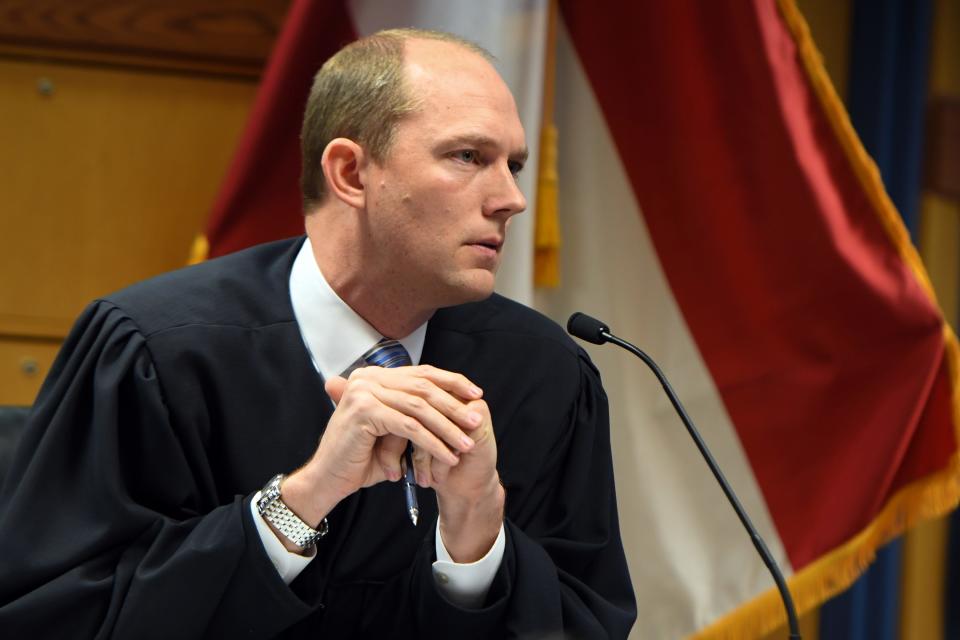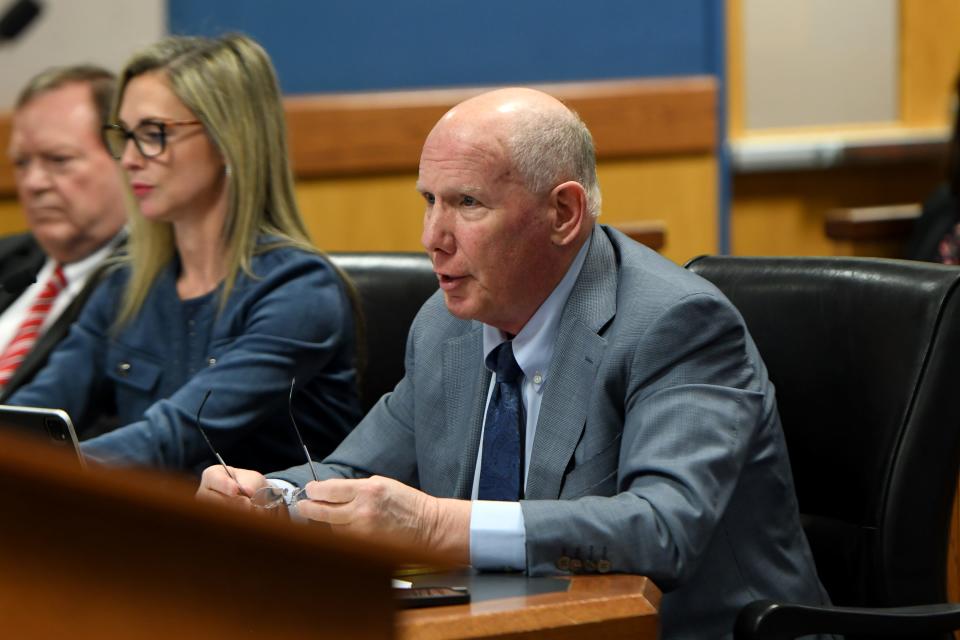Georgia judge rejects Donald Trump request to dismiss election racketeering charges under 1st Amendment
The Georgia judge in Donald Trump’s election interference case on Thursday rejected his argument that the First Amendment shielded him from racketeering charges because his unfounded claims of widespread election fraud were political speech.
Trump’s lawyer, Steve Sadow, argued the charges should be dismissed because Trump was speaking about politics as president. Sadow argued that even if Trump made false statements as alleged in the indictment, he must be protected for a robust political debate.
But Fulton County Superior Judge Scott McAfee ruled that the First Amendment doesn’t protect speech that is part of a crime – and that a jury must decide whether it was in Trump’s case.
“The allegations that the Defendants’ speech or conduct was carried out with criminal intent are something only a jury can resolve,” McAfee wrote.

Sadow said in a statement Thursday that he respectfully disagreed with McAfee’s order but could potentially raise the issue again later.
The Georgia case is one of four criminal trials pending against Trump and he has pleaded not guilty in each of them. He previously tried to have Fulton County District Attorney Fani Willis removed from the case because of her relationship with another prosecutor, but only special prosecutor Nathan Wade had to resign.
Trump and 18 co-defendants were charged with a racketeering conspiracy that tried to steal the 2020 election by urging state officials to overturn the results. Four of the co-defendants have pleaded guilty and the rest await trial.
The indictment alleges defendants Rudy Giuliani, Ray Smith and Robert Cheeley “knowingly and willfully made false statements” about election fraud to state lawmakers. The indictment also alleges the Trump campaign recruited Republicans – three of whom are charged in the case – to file false documents posing as presidential electors despite President Joe Biden winning the state. And the indictment alleges Trump and co-defendant John Eastman conspired to file false documents in a federal lawsuit challenging the election results.
In rejecting Trump’s request to dismiss the charges, McAfee ruled that a jury must decide whether he and other defendants acted “willfully” and “knowingly” to break the law.
“During oral argument, the Defendants posited that the speech at issue, even if false, was political and that one cannot be prosecuted for falsity alone,” McAfee wrote. “Instead, the indictment avers throughout that the Defendants acted “willfully” and “knowingly,” and that they impacted matters of governmental concern.”

Sadow had urged McAfee to dismiss the charges against Trump because they are based on his statements questioning the election results and pressuring state officials to overturn them.
“Falsity alone is not enough,” Sadow said. “Clearly, being president at the time, dealing with elections and campaigning, calling into question what had occurred – that’s the height of political speech.”
But prosecutors argued Trump’s statements contributed to a wide-ranging conspiracy of making false statements to government officials, submitting false and forged documents and impersonating public officials. Trump asked Georgia Secretary of State Brad Raffensperger, a fellow Republican, to "find" the votes he would need to carry the Peach State.
“It’s not just that he lied over and over and over again,” said prosecutor Donald Wakeford. “It’s that each of those was employed as part of criminal activity with criminal intentions.”
McAfee found the allegations went beyond political speech. “The State has alleged more than mere expressions of a political nature,” McAfee wrote. “Rather, the indictment charges the Defendants with knowingly and willfully making false statements to public officers and knowingly and willfully filing documents containing false statements and misrepresentations within the jurisdiction of state departments and agencies.”
This article originally appeared on USA TODAY: Georgia judge refuses to dismiss Trump election racketeering charges
